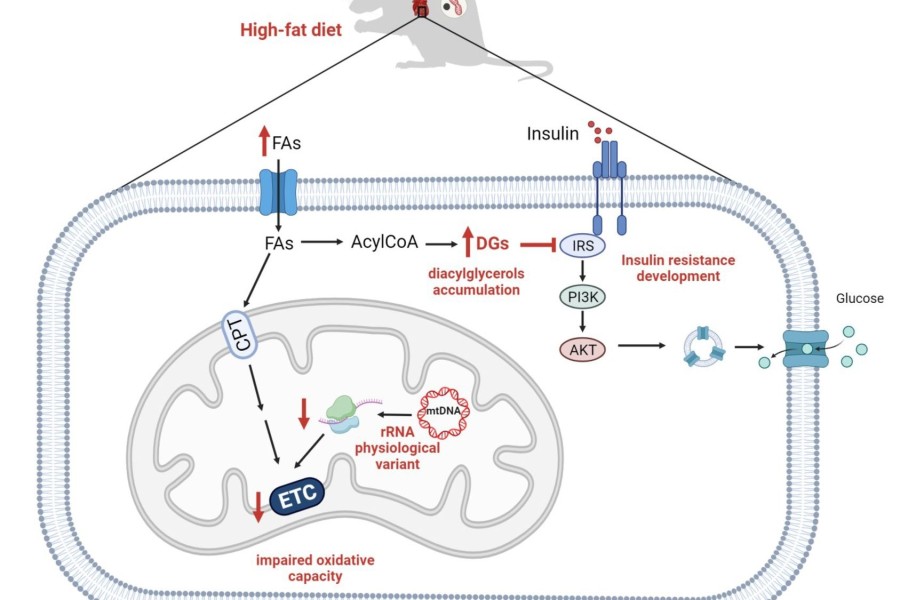
Obesity, high blood sugar levels, and insulin resistance – typical symptoms of metabolic syndrome – may be linked to inherited changes in mitochondrial DNA. Research conducted by scientists from the Bioenergetics Laboratory of the Institute of Physiology of the Czech Academy of Sciences and the National Institute for Metabolic and Cardiovascular Disease Research (CarDia) has shown that mtDNA variability can affect the cells’ ability to produce energy and thus contribute to the development of metabolic syndrome.
"Certain mitochondrial DNA variants impair the production of proteins essential for energy metabolism, which leads to the accumulation of lipids that negatively affect insulin signaling," says the lead author of the study, Alena Pecinová from the Institute of Physiology.
To explore the role of mtDNA, researchers used special strains of laboratory rats that differ only in their mitochondrial genes. In some of them, insulin resistance developed after a high-fat diet.
"Mitochondria play a crucial role in energy metabolism, and mtDNA variants that were once advantageous may now pose a risk," Pecinová adds. The research continues, including investigations into the impact of mtDNA during aging and differences between sexes under dietary stress.
These findings help explain why some individuals are more susceptible to metabolic disorders and may support more targeted approaches in prevention and treatment.